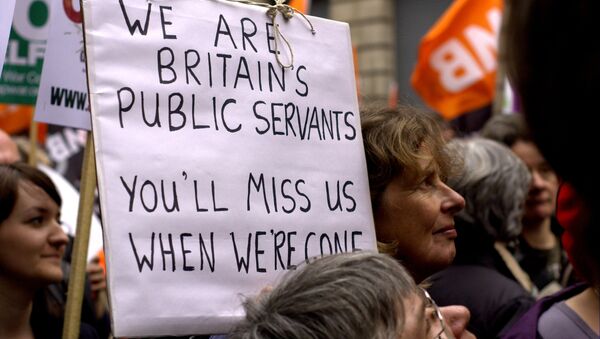All three main parties – Conservative, Labour and the Liberal Democrats – are committed to some sort of fiscal belt-tightening. However, the National Institute of Economic and Social Research (NIESR) has identified up to £55 billion of implied cuts to the government’s current budget that the parties have yet to get around to telling us about. In the case of the Conservative Party, this represents almost as much as all the rest of the announced measures combined.
IFS says 'worst of cuts to come': The Institute of Fiscal Studies' Green Budget says the worst of UK spending… http://t.co/d9FxaGmVyD
— John Plumridge (@curtisplumstone) February 4, 2015
As the UK’s General Election in May looms, the economy, and in particular the path and pace of fiscal consolidation over the next Parliament, will dominate the political debate. Politically, any party that wins the election will be faced with having to make further cuts to public spending – or raise taxes, which is not likely to prove popular.
The Conservative party has announced its ambition to reach an absolute surplus and they also have a stated aim to reduce welfare spending by an additional £12 billion. The Labour party has announced that it will target a surplus on the public sector's current budget in the next parliament. The Liberal Democrats’ ambition is to run a cyclically-adjusted current budget that is in balance.
#BenefitsBritain UK welfare spending: how much does each benefit really cost? http://t.co/nLZVrPAwLZ #benefits #dwp #jsa #pip #dla #welfare
— Barry Evans (@bazblackadder) February 9, 2015
Voters Denied Rights to Openness
The NIESR study found that: “Under both the Labour and Liberal Democrat fiscal targets, public sector borrowing would be used to fund investment. The Office for Budget Responsibility (OBR) forecasts a closing of the negative output gap by 2019-20; that implies that the cyclically-adjusted current balance and the actual current balance will be the same, leaving no difference between the stated fiscal targets of the Labour and Liberal Democrat parties by the end of the next parliament.”
The macroeconomic impact of the parties' fiscal plans. New research from @NIESRorg http://t.co/qNNsivkQbs pic.twitter.com/jAROPb7wHu
— Jonathan Portes (@jdportes) February 9, 2015
The study implies that all three main parties are struggling to be open and honest about their actual spending plans after the 2015 election, leaving major questions – on matters of huge impact – open to guesswork. It says voters are being denied the right to clear commitments to public spending cuts.
Paul Johnson, the director of the Institute for Fiscal Studies said: “One cannot just look at the scale of implied cuts going forward and say they are unachievable. But it is surely incumbent upon anyone set on taking the size of the state to its smallest in many generations to tell us what that means.
"How will these cuts be implemented? What will local government, the defence force, the transport system, look like in this world? Is this a fundamental re-imagining of the role of the state?”
The NIESR is calling on the UK Office of Budget Responsibility to be given wider powers to examine party manifestos ahead of general elections to ensure the public has an independent view regarding their plans for taxation and spending commitments after the vote.




